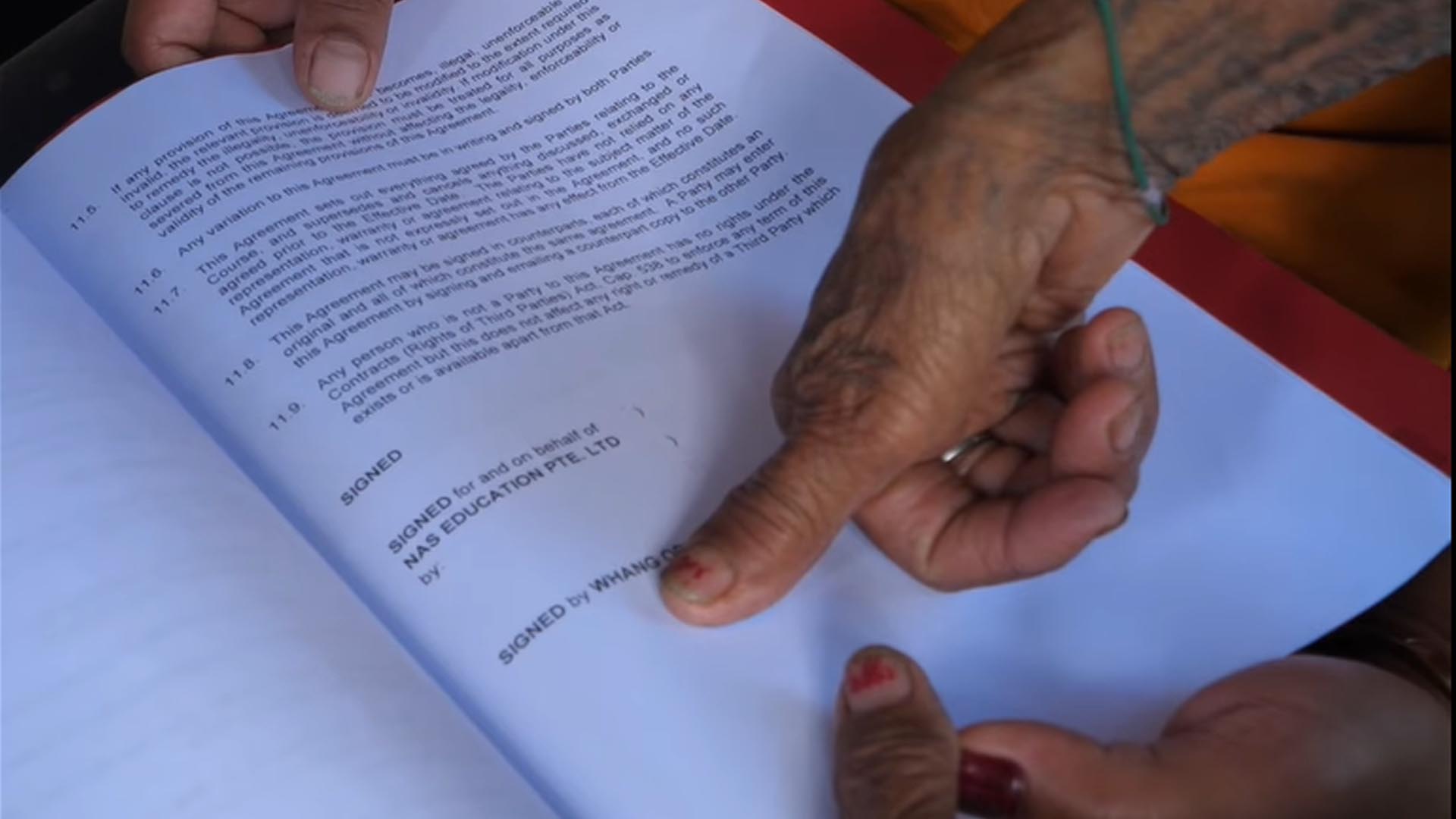The National Commission on Indigenous Peoples (NCIP) released a statement on Sunday, August 29 following the issue of Apo Whang-od and her alleged contract with creator Nuseir Yassin.
In a Facebook post, the NCIP-CAR made its review on the said contract and found out that Whang-od, whose full name is Maria Oggay, did not sign any contract with the online platform Nas Academy.
NCIP-CAR Regional Director Atty. Marlon Bosantog has personally interviewed Whang-Od, her family, the elders, and the leaders of their tribe.
Based on his findings, the tattooist wasn’t even aware of affixing her thumb mark on the said contract.
“Apo Whang-Od did not consent or was made aware she would teach the Kalinga art of tattooing in Nas Academy,” the NCIP stated after its investigation.
“No provision of the contract was explained or discussed to her or to her representative, or what was assured of her is external to the terms of the contract,” the NCIP added.
Stella Palangdao, Whang-Od’s representative, told NCIP that “the provisions of the contract were not explained to them that they were made to sign the contract of filming, interview, photography, and release of such.”
Moreover, the NCIP’s 4th finding of the contract was “grossly onerous” on the part of Apo Whang-od since it was stated to be based on Singaporean laws where the creator is currently based.
“The contract states that the Nas Academy has exclusive ownership of any content that the show would produce including the likeness, image, voice, etc. of Apo Whang-od and such ownership is in perpetuity, inclusive of the right alteration and the right to assign and transfer the same without consent. Furthermore, the law of Singapore shall govern said contract,” the agency wrote.
The NCIP team has also spotted a difference between the tattooist thumb mark affixed on the contract and the one affixed on a clean piece of paper.
Furthermore, the agency would want a forensic study of the subject.
In the light of the foregoing case, the agency is willing to provide protections to Whang-od including legal assistance if they decide to file a case against Nas Academy.
The NCIP recommended that the consent of the community must be sought if the same incident will happen involving the Indigenous Knowledge System and Practices of the community.
Researchers must have notified them or the local government units before conducting any activities within the tattooist domain.
Thus, the NCIP reminded the visitors to be “culturally sensitive” considering her stature as a culture bearer.








